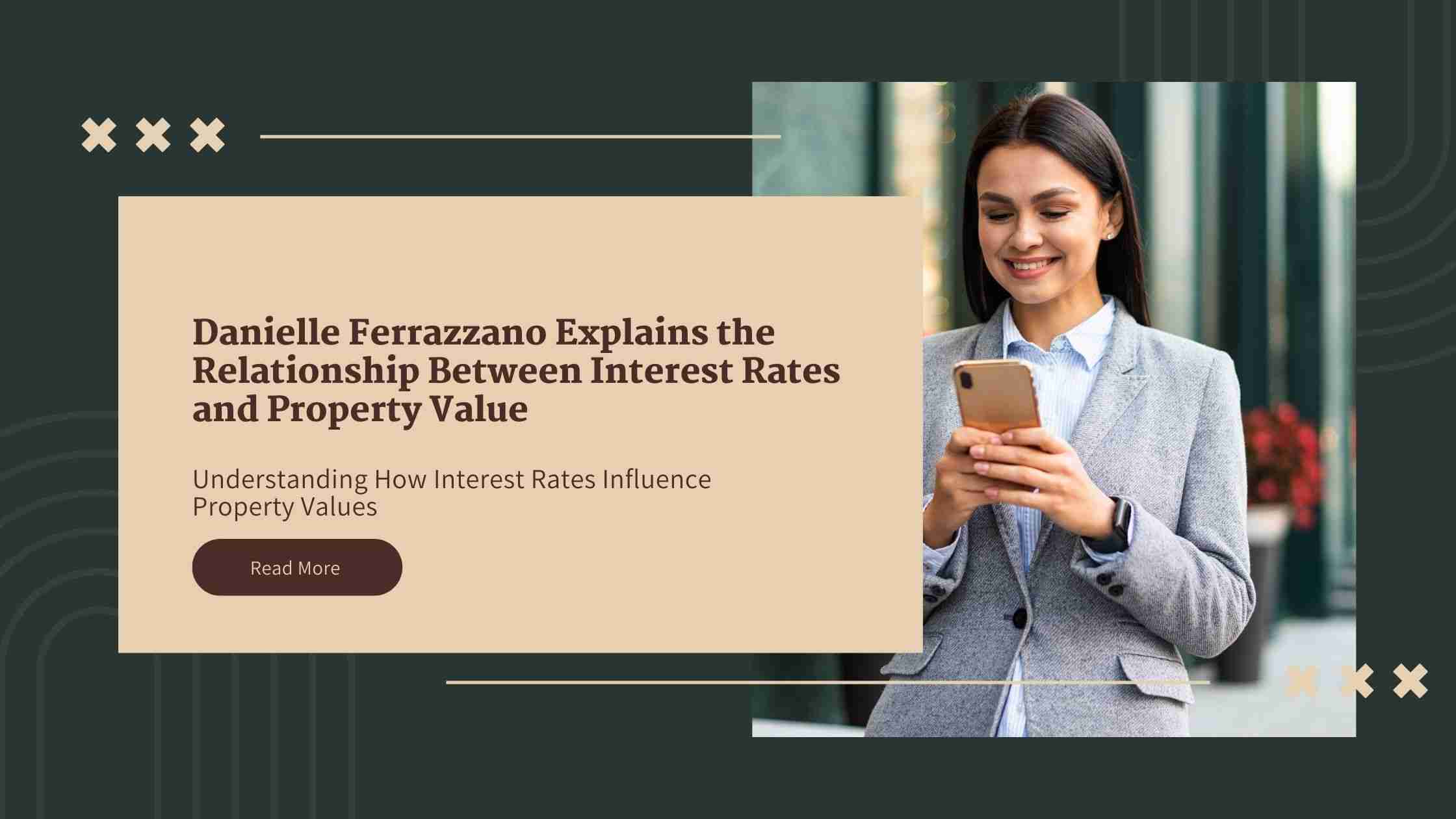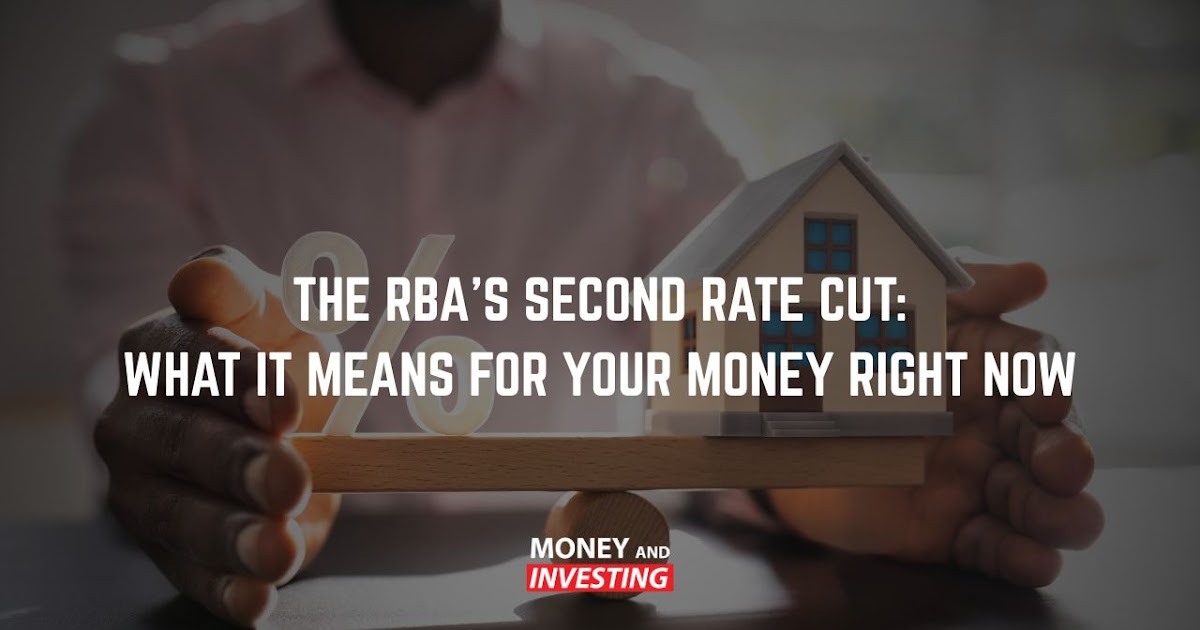Andrew Baxter Decodes the RBA’s Latest Rate Move and Its Effect on Everyday Aussies
In this insightful update, financial expert Andrew Baxter breaks down the Reserve Bank of Australia’s latest interest rate cut and what it truly means for everyday Australians. From mortgage holders and renters to investors and retirees, Baxter explains who benefits and who faces new challenges in this shifting environment. Discover how this move impacts home loans, savings, property prices, and the broader economy. With practical tips and clear analysis, Andrew Baxter provides the guidance you need to adapt your financial strategy and make confident money decisions in today’s evolving economic climate.
https://ausinvestmenteducation....bas-latest-rate.html
#andrewbaxter
#rbaratecut
#australianeconomy
#interestrates
#monetarypolicy
#financialplanning
#investsmart
#wealthbuilding
#longterminvesting
#australianinvestors
Interest Rate Cuts Explained: A Guide to Personal and Market Impact, with Andrew Baxter's Perspective
Interest Rate Cuts Explained: A Guide to Personal and Market Impact," featuring insights from financial expert Andrew Baxter. In this comprehensive guide, we break down the complexities of interest rate cuts and their ripple effects on both individual wallets and the broader economy. Learn how lower interest rates can reduce borrowing costs, boost consumer spending, and stimulate economic growth. Andrew Baxter provides a critical analysis of the advantages for homeowners and businesses, while also addressing potential drawbacks for savers as interest rates decline. Discover how interest rate changes influence investment strategies and market dynamics, helping you make informed financial decisions. Whether you're a homeowner, investor, or just curious about the economy, this guide will equip you with valuable knowledge about the implications of interest rate cuts. Stay ahead of the curve and understand how these economic shifts can impact your financial future today.
https://postr.yruz.one/how-int....ket-a-complete-guide
#interestrates
#economicimpact
#ratecuts
#consumerspending
#housingmarket
#inflation
#investmentstrategies
#realestate
Australia's economic landscape in 2025 will continue to be shaped by the ongoing challenge of inflation and interest rates. The Reserve Bank of Australia (RBA) has remained steadfast in its mission to bring inflation back to target levels, resisting calls for premature rate cuts. However, there is a possibility that 2025 could mark the beginning of a gradual rate-cutting cycle.
External factors may add complexity to this forecast. As Australia enters an election year, increased government spending could drive inflation higher, potentially delaying the timeline for sustained rate reductions. Households already grappling with mortgage stress and tighter budgets will likely face continued financial pressure, with consumer confidence and spending remaining subdued in the near term.
https://telegra.ph/Australias-....-Andrew-Baxter-02-06
#australiaeconomy2025 #interestrates #inflation #rba #economicoutlook #mortgagestress
Danielle Ferrazzano Explains the Relationship Between Interest Rates and Property Value
In the ever-evolving world of real estate, understanding the intricate relationship between interest rates and property values is crucial for both buyers and investors. Danielle Ferrazzano, a seasoned real estate expert, sheds light on this complex dynamic, helping us navigate the financial landscape with clarity.
The Basics of Interest Rates
Interest rates are essentially the cost of borrowing money. When you take out a mortgage to buy a home, the interest rate determines how much you'll pay in addition to the principal amount. Lower interest rates mean lower monthly payments, making homeownership more accessible. Conversely, higher rates can deter potential buyers, leading to a slowdown in the housing market.
How Interest Rates Impact Property Values
Danielle explains that interest rates and property values are inversely related. When interest rates rise, borrowing becomes more expensive. This often results in fewer buyers entering the market, which can lead to a decrease in demand for properties. As demand wanes, property values tend to decline.
For instance, during periods of rising interest rates, prospective buyers may find themselves priced out of the market, leading to a surplus of homes for sale. This oversupply can push property values down, creating a ripple effect throughout the market.
On the flip side, when interest rates are low, borrowing is more affordable. This encourages more buyers to enter the market, increasing demand for homes. As competition among buyers grows, property values typically rise. Danielle notes that this is particularly evident in hot markets where low interest rates can lead to bidding wars, driving prices up even further.
The Broader Economic Context
It's essential to consider the broader economic context when examining the relationship between interest rates and property values. Economic growth, employment rates, and consumer confidence all play significant roles in shaping the real estate market. For instance, during times of economic expansion, even if interest rates rise, property values might not decline significantly if job growth and consumer confidence remain strong.
Danielle Ferrazzano emphasizes that local market conditions also matter. In areas where job opportunities are plentiful and population growth is robust, property values may continue to rise despite increasing interest rates. This highlights the importance of analyzing specific markets rather than relying solely on national trends.
The Impact of Inflation
Inflation is another factor that intertwines with interest rates and property values. When inflation rises, central banks often increase interest rates to stabilize the economy. Higher interest rates can dampen demand for housing, but inflation can also drive property values up. Real estate is often seen as a hedge against inflation, as property values and rents tend to increase over time. Danielle points out that savvy investors often look for properties in inflationary environments, recognizing that while interest rates may rise, the long-term value of real estate can still appreciate.
Strategies for Buyers and Investors
For buyers and investors, understanding the relationship between interest rates and property values can inform strategic decisions. Danielle advises potential homebuyers to consider locking in a mortgage rate when rates are low, as this can significantly impact their purchasing power. On the other hand, investors should keep a close eye on interest rate trends and economic indicators, adjusting their strategies accordingly.
For those looking to sell, timing can be everything. If interest rates are on the rise, it may be prudent to sell before the market cools. Conversely, in a low-interest-rate environment, sellers may find themselves in a favorable position, with increased buyer interest driving up property values.
Conclusion
Danielle Ferrazzano's insights into the relationship between interest rates and property values illuminate a vital aspect of the real estate market. By understanding these dynamics, buyers and investors can make informed decisions that align with their financial goals. Whether you're looking to purchase your first home or expand your investment portfolio, staying informed about interest rate trends is key to navigating the complex world of real estate successfully.
#realestateinsights #interestrates #propertyvalue #homebuying #realestatemarket #investsmart #economictrends #housingmarket #danielleferrazzano #financialliteracy #realestatetips #marketanalysis #homeinvestment #propertyinvesting #wealthbuilding
Visit:- https://teletype.in/@danielleferrazzano

What factors influence corporate bond interest rates?
Corporate bond interest rates are influenced by several factors including the creditworthiness of the issuing company, prevailing market interest rates, inflation expectations, economic conditions, and the bond’s maturity. Higher credit risk and longer maturities typically result in higher interest rates to compensate investors for the increased risk and time horizon.
Visit: https://bit.ly/3LBVAg8
#interestrates #investors #corporatebond #result #credit
 News Feed
News Feed  Albums
Albums  Popular Posts
Popular Posts  Memories
Memories  Pokes
Pokes  Blog
Blog  Market
Market  Directory
Directory  Events
Events  Games
Games  Jobs
Jobs  Offers
Offers  Find friends
Find friends  Common Things
Common Things  Fundings
Fundings 